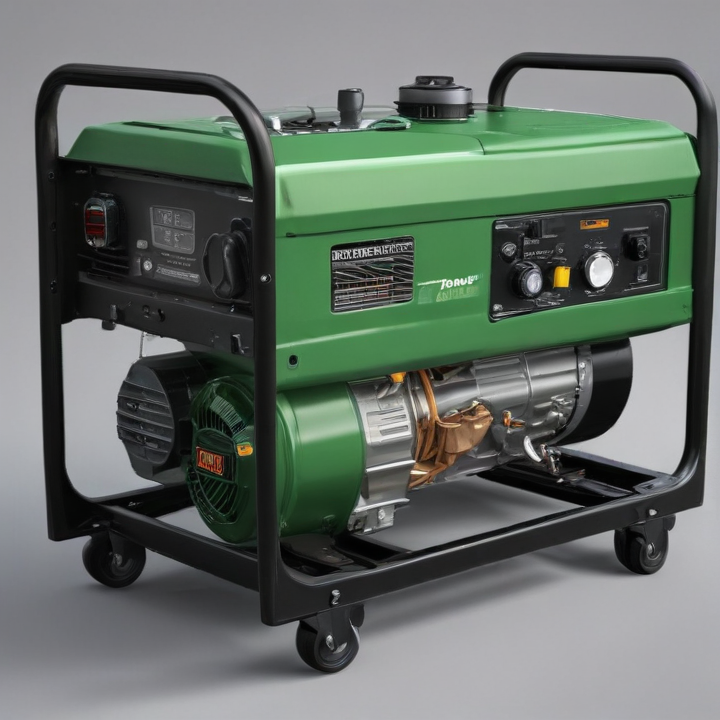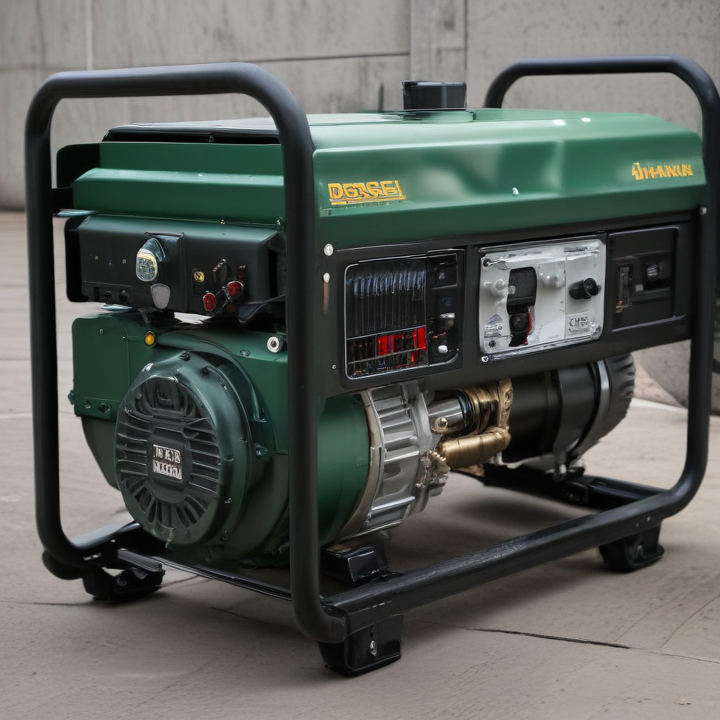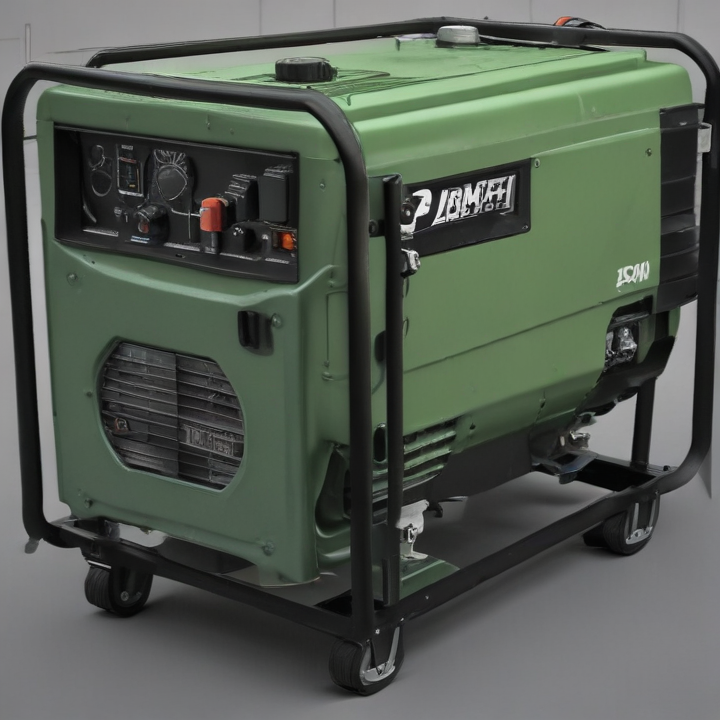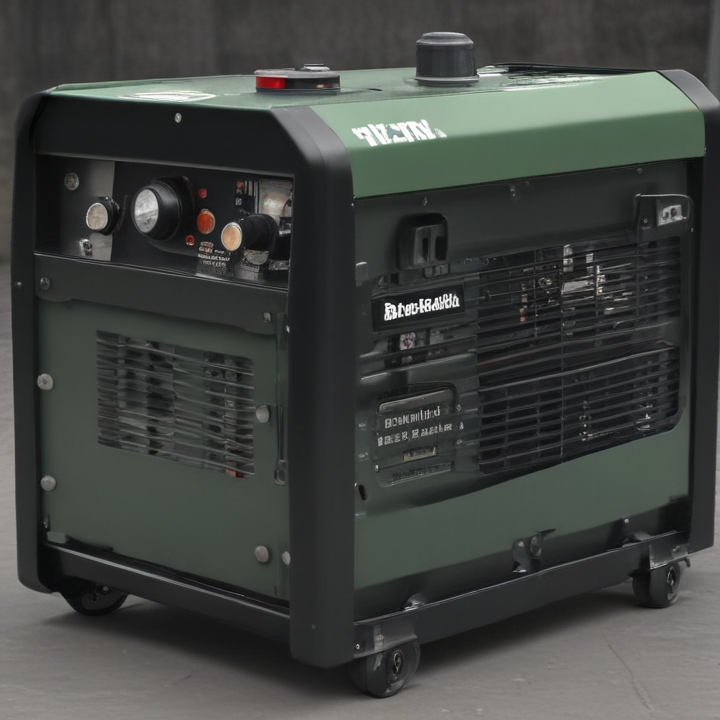7kw diesel generator Safety Certifications
When considering the safety certifications for a 7kW diesel generator, it’s essential to look for several key certifications and features that ensure its safe operation and compliance with industry standards.
1. CE Certification: This certification indicates that the generator complies with the health, safety, and environmental protection standards for products sold within the European Economic Area (EEA).
2. ISO 9001 Certification: This is a quality management standard that ensures the product meets customer and regulatory requirements. Generators with this certification have undergone rigorous testing and quality assurance processes.
3. ANSI/PGMA G300 Standard: Developed by the Portable Generator Manufacturers’ Association (PGMA), this standard includes safety features like carbon monoxide sensing technology, which automatically shuts down the generator if CO levels become hazardous. This helps prevent CO poisoning, a significant risk when using generators improperly.
4. UL Listing: Underwriters Laboratories (UL) certification ensures that the generator has been tested for safety risks such as fire, electric shock, and mechanical hazards. Although not all models may carry this certification, it is a mark of high safety standards.
5. Safety Features: Many 7kW diesel generators, like the Kubota GL7000, come equipped with several built-in safety features. These include automatic engine shutdown if the oil pressure is low or the water temperature is too high, circuit protectors to prevent overload, and safety relays to avoid unintended starts.
Ensuring your generator has these certifications and features will provide greater peace of mind and safer operation, especially in environments where reliability and safety are paramount. Always check the specific model’s certifications and user manual for detailed safety instructions and compliance information.
List Reference Technical Parameters of “7kw diesel generator”
A 7kW diesel generator is a power generation unit typically used for residential, commercial, or light industrial applications. Below are the reference technical parameters commonly associated with a 7kW diesel generator:
1. Power Output:
– Rated Power: 7 kW
– Maximum Power: Often slightly higher, around 7.5 kW to 8 kW
2. Engine:
– Type: 4-stroke, air or water-cooled
– Displacement: Typically between 400cc to 600cc
– Fuel Type: Diesel
– Fuel Consumption: Approximately 1.5 to 2.0 liters per hour at full load
– Starting System: Electric start (battery-operated) or recoil start
3. Alternator:
– Type: Brushless, single-phase or three-phase
– Voltage: 120/240V (single-phase) or 208/220/380V (three-phase)
– Frequency: 50Hz or 60Hz
– Power Factor: 0.8 lagging (for industrial loads)
4. Control Panel:
– Display: Digital or analog gauges for voltage, current, frequency, and hours run
– Protection: Circuit breaker, overload protection, oil level/pressure alarm, high temperature shutdown
5. Fuel System:
– Fuel Tank Capacity: Typically between 15 to 25 liters
– Fuel Filter: Standard in-line or spin-on type
6. Dimensions and Weight:
– Dimensions: Approximately 1000mm (L) x 600mm (W) x 700mm (H)
– Weight: Between 150 to 200 kg
7. Noise Level:
– Noise Level: Around 70-80 dB(A) at 7 meters distance
8. Exhaust System:
– Muffler: Standard or super silent type to reduce noise
– Emission Compliance: Meets local environmental regulations (EPA, Euro V, etc.)
9. Operational Features:
– Run Time: 8-10 hours at 50% load on a full tank
– Mobility: Sometimes equipped with wheels for portability
10. Additional Features:
– Automatic Voltage Regulation (AVR)
– Low Oil Shutoff
– Remote Start Capability (optional)
These parameters can vary slightly depending on the manufacturer and specific model. Always refer to the manufacturer’s datasheet for precise details.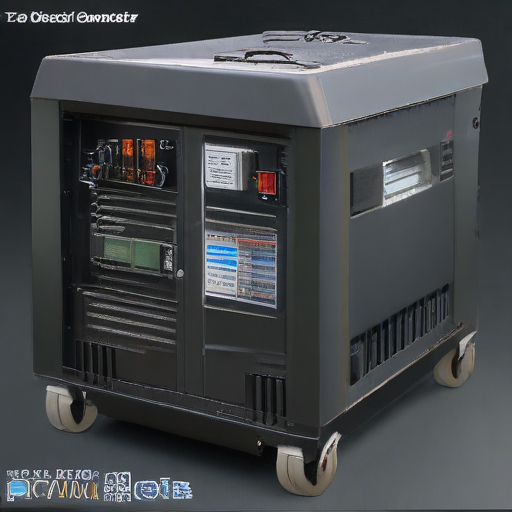
List Product features of “7kw diesel generator”
Product Features of 7kW Diesel Generator
1. Power Output:
– Rated power: 7kW (7,000 watts)
– Suitable for both residential and small commercial applications.
2. Engine:
– Diesel-powered engine, known for durability and fuel efficiency.
– Typically equipped with a four-stroke, air-cooled engine.
3. Fuel Efficiency:
– Consumes diesel at a rate that ensures extended run times.
– Often features a fuel tank capacity of 10-15 liters, allowing for 8-12 hours of continuous operation at full load.
4. Start Mechanism:
– Equipped with an electric start system for ease of use.
– May also include a recoil start as a backup.
5. Control Panel:
– Includes an advanced control panel with digital display.
– Displays essential information such as voltage, frequency, and run-time.
– Features include automatic voltage regulation (AVR) and multiple power outlets (AC and DC).
6. Noise Level:
– Designed with soundproof enclosures to minimize noise output.
– Typical noise level ranges from 65-75 dB, making it suitable for residential use.
7. Safety Features:
– Integrated with overload protection and low-oil shutdown to prevent engine damage.
– Equipped with circuit breakers to protect against short circuits and overloading.
8. Portability:
– Mounted on a sturdy frame with wheels and handles for easy transportation.
– Compact design suitable for easy storage and mobility.
9. Maintenance:
– User-friendly maintenance features, including easy access to oil and air filters.
– Often includes indicators for maintenance schedules.
10. Applications:
– Ideal for backup power in homes, small offices, and construction sites.
– Can be used for outdoor events, emergency situations, and small industrial applications.
This 7kW diesel generator offers a balance of power, efficiency, and portability, making it a versatile solution for various power needs.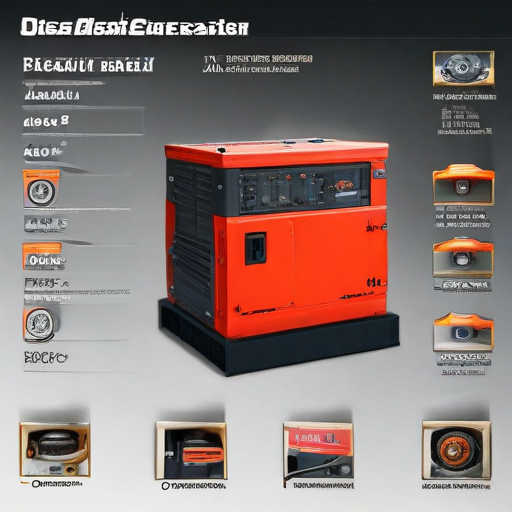
List Various Types of “7kw diesel generator”
Here are several notable models of 7kW diesel generators, each catering to different needs and applications:
1. Kubota GL7000: This generator features a compact design with a vertical diesel engine, minimizing height for better space utilization. It includes a direct coupling of the engine and generator, reducing power loss and enhancing reliability. Key features include automatic shutdown for low oil pressure or high water temperature, a large 7.4-gallon fuel tank for extended run times, and a noise level of 66 dB at 7 meters.
2. Multiquip WhisperWatt DA7000SSA3: Known for its durability and quiet operation, this model is ideal for demanding environments. It has a 12.5 HP Kubota engine, a single-phase output of 120/240 volts, and a comprehensive analog control panel. It is EPA Tier 4 Final certified and features a mechanical governor for consistent power delivery. The fuel tank capacity is 6.6 gallons, with fuel consumption of 0.69 gallons per hour at full load.
3. Kubota Lowboy II: Part of the GL series, this generator is designed for space efficiency and environmental friendliness. It uses a vertical diesel engine with direct coupling to the cooling fan, ensuring minimal power loss and clean emissions. It is also equipped with features to reduce waveform distortion and stabilize voltage fluctuations, making it suitable for a variety of applications.
These models offer reliable performance for both commercial and residential use, providing clean and stable power with varying features to suit different requirements.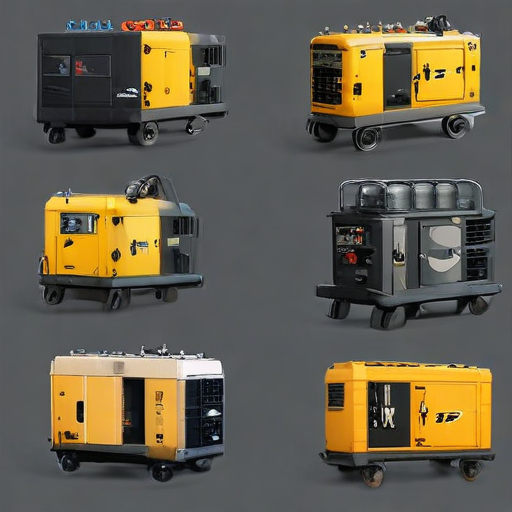
List Application of “7kw diesel generator”
A 7kW diesel generator is a versatile power source suitable for various applications. Here are some key uses:
1. Home Backup Power: In residential settings, a 7kW diesel generator provides reliable backup during power outages, supporting essential appliances like refrigerators, lights, and heating systems.
2. Construction Sites: These generators are widely used on construction sites to power tools, lighting, and other necessary equipment, ensuring continuous work without relying on grid power.
3. Small Businesses: For small businesses such as retail shops, restaurants, and offices, a 7kW generator ensures operational continuity during power disruptions, protecting against financial losses.
4. Farming and Agriculture: Farmers use these generators to operate equipment such as irrigation systems, milking machines, and other essential farm machinery, especially in remote areas without consistent grid access.
5. Remote Locations: In off-grid locations like cabins or remote research stations, a 7kW diesel generator provides the necessary electricity for daily operations and comfort.
6. Events and Outdoor Activities: For outdoor events, such as weddings, festivals, or camping, these generators supply power for lighting, sound systems, and other event-related equipment.
7. Emergency Services: During emergencies, these generators are critical for powering communication devices, medical equipment, and other essential services in disaster relief efforts.
8. Mobile Operations: Food trucks, mobile clinics, and other mobile operations benefit from the portability and reliability of a 7kW diesel generator to run their operations efficiently.
9. Industrial Applications: Small-scale industrial setups use these generators for powering machinery and maintaining operations during power outages or in areas without stable electricity.
Overall, the 7kW diesel generator’s combination of power, reliability, and portability makes it an invaluable tool across a wide range of scenarios, ensuring uninterrupted power supply where and when it’s needed most.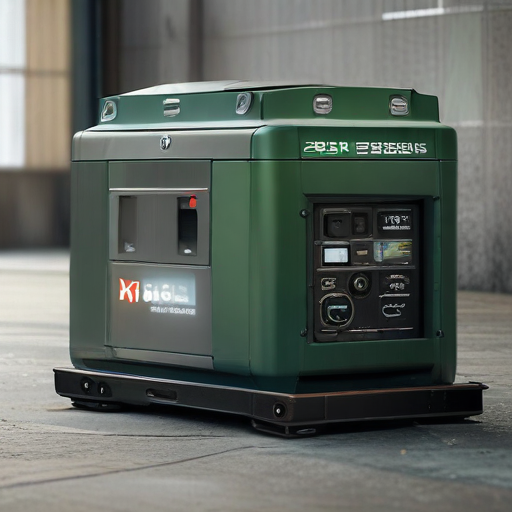
List Buyer Types of “7kw diesel generator”
Buyer Types for a 7kW Diesel Generator
1. Residential Buyers:
– Homeowners: Seeking backup power solutions for their homes during outages.
– Remote Area Residents: Needing reliable power in locations without stable grid access.
2. Commercial Buyers:
– Small Businesses: Such as restaurants or retail stores that require a backup power source to maintain operations during power outages.
– Offices: Ensuring uninterrupted work and data protection in case of power failure.
3. Industrial Buyers:
– Construction Sites: Needing portable and reliable power sources for tools and equipment on-site.
– Manufacturing Plants: Ensuring continuous production in areas with unstable power supply.
4. Agricultural Buyers:
– Farmers: Using generators to power essential equipment like irrigation systems, heaters for livestock, and refrigeration units.
– Greenhouse Operators: Maintaining climate control systems to protect crops.
5. Institutional Buyers:
– Schools and Universities: Keeping essential systems running during power interruptions.
– Hospitals and Clinics: Ensuring critical medical equipment remains operational.
6. Government Buyers:
– Emergency Services: Fire stations, police departments, and emergency response teams requiring backup power for critical operations.
– Municipalities: Using generators for public infrastructure, such as water treatment plants.
7. Recreational Buyers:
– Event Organizers: Providing power for outdoor events, fairs, and festivals.
– Recreational Vehicle (RV) Owners: Ensuring a reliable power source during travels.
8. Specialized Buyers:
– Telecommunication Companies: Maintaining power for communication towers and data centers.
– Military: Using generators in remote or temporary bases.
Each of these buyer types has distinct needs and priorities, driving their decision to invest in a 7kW diesel generator.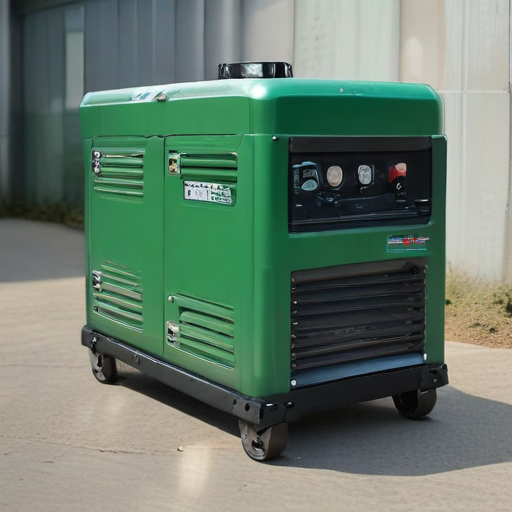
List “7kw diesel generator” Project Types for Different Industries
Project Types for 7kW Diesel Generators Across Different Industries
#### Construction
1. Site Power Supply: Provides electricity for tools, lighting, and machinery on construction sites.
2. Temporary Offices: Powers temporary office trailers and portable cabins.
#### Agriculture
1. Irrigation Systems: Supports electric pumps for irrigation.
2. Livestock Farms: Ensures power for feeding systems, milking machines, and lighting in barns.
#### Healthcare
1. Mobile Clinics: Ensures continuous power supply for medical equipment and refrigeration of medicines.
2. Emergency Backup: Provides backup power for small healthcare facilities and clinics.
#### Telecommunications
1. Remote Towers: Powers remote communication towers and relay stations.
2. Data Centers: Acts as a backup power source for small data centers and server rooms.
#### Events and Entertainment
1. Outdoor Events: Supplies electricity for sound systems, lighting, and food stalls at outdoor events and festivals.
2. Film Sets: Powers equipment and lighting on film and TV sets, especially in remote locations.
#### Retail and Hospitality
1. Pop-up Shops: Provides electricity for temporary retail setups and food trucks.
2. Small Hotels and Restaurants: Acts as an emergency power source during outages.
#### Mining
1. Exploration Sites: Supplies power to remote exploration sites and camps.
2. Portable Equipment: Powers portable drilling and extraction equipment.
#### Manufacturing
1. Workshops: Provides power to small manufacturing units and workshops.
2. Maintenance: Supplies power for maintenance operations in larger plants.
#### Government and Military
1. Field Operations: Powers communication and operational equipment in field deployments.
2. Emergency Services: Provides backup power for emergency response units during disasters.
#### Residential
1. Emergency Backup: Acts as a backup power source for homes during power outages.
2. Off-grid Living: Supplies power to homes in remote or off-grid locations.
Each project type ensures that industries can maintain operational continuity and efficiency, even in remote or challenging environments.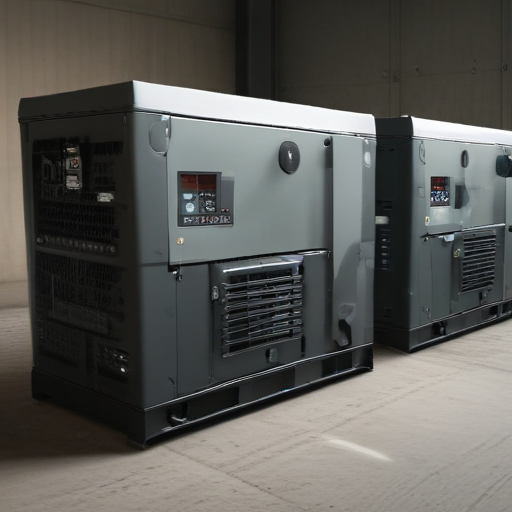
7kw diesel generator Accessories Upgrades and Custom Manufacturing Options
Upgrading and customizing a 7kW diesel generator can significantly enhance its performance, efficiency, and suitability for specific applications. Here are some accessories and custom manufacturing options to consider:
Accessories Upgrades:
1. Automatic Transfer Switch (ATS):
– Ensures a seamless transition to generator power during a utility outage, providing uninterrupted power supply.
2. Remote Monitoring Systems:
– Enables real-time monitoring and control of the generator from a remote location, improving maintenance and operational efficiency.
3. Extended Fuel Tanks:
– Increases the generator’s runtime by providing a larger fuel capacity, reducing the need for frequent refueling.
4. Sound Attenuation Kits:
– Reduces operational noise, making the generator suitable for use in noise-sensitive environments such as residential areas.
5. Battery Chargers:
– Maintains the generator’s starting battery at optimal charge, ensuring reliable start-up when needed.
6. Weather-Proof Enclosures:
– Protects the generator from harsh weather conditions, enhancing its durability and lifespan.
7. Exhaust Silencers:
– Minimizes exhaust noise and emissions, contributing to environmental compliance and operational comfort.
Custom Manufacturing Options:
1. Custom Control Panels:
– Tailored control panels that meet specific operational requirements, including digital displays, load management, and customized alarms.
2. Voltage and Frequency Customization:
– Adjustments to output voltage and frequency to match the specific needs of different equipment and applications.
3. Parallel Capability:
– Modifications that allow multiple generators to operate in parallel, increasing total power output and providing redundancy.
4. Custom Engine Tuning:
– Optimization of the engine’s performance characteristics for specific operational conditions, such as high altitude or extreme temperatures.
5. Specialized Fuel Systems:
– Custom fuel systems designed for alternative fuels or dual-fuel operations, offering flexibility and efficiency.
6. Heavy-Duty Frame and Mounting Options:
– Reinforced frames and specialized mounts for increased durability and stability, suitable for mobile or harsh environments.
By integrating these accessories and custom manufacturing options, a 7kW diesel generator can be tailored to meet specific operational demands, ensuring reliable and efficient performance.
List Quality Control and The Manufacturing Process of “7kw diesel generator”
Quality Control and Manufacturing Process of a 7kW Diesel Generator
Manufacturing Process:
1. Design and Specification:
– Initial designs are created based on performance requirements, including power output (7kW), fuel efficiency, and durability.
– Detailed specifications are outlined, including engine type, alternator specifications, and control systems.
2. Material Procurement:
– High-quality materials and components are sourced from trusted suppliers. This includes the engine, alternator, frame, fuel system, and control panel.
3. Engine Assembly:
– The diesel engine, a critical component, is assembled. This includes mounting the cylinder block, pistons, crankshaft, and other vital parts.
– The fuel system, including injectors and filters, is integrated into the engine assembly.
4. Alternator Assembly:
– The alternator, responsible for converting mechanical energy to electrical energy, is assembled and tested for efficiency and stability.
5. Integration:
– The engine and alternator are mounted onto the generator frame.
– The cooling system, exhaust system, and fuel tank are installed.
– Electrical components, including the control panel and wiring, are integrated.
6. Initial Testing:
– The assembled generator undergoes initial testing to ensure all components work together effectively.
– Adjustments are made to optimize performance and compliance with design specifications.
Quality Control:
1. Component Inspection:
– Each component undergoes rigorous inspection before assembly. This includes material quality checks and dimensional accuracy.
2. In-Process Inspection:
– Continuous inspections during assembly ensure each stage meets quality standards.
– Critical parameters such as torque settings and alignment are verified.
3. Performance Testing:
– Post-assembly, the generator undergoes comprehensive testing. This includes load tests to ensure it can handle 7kW output without issues.
– Fuel efficiency, noise levels, and emission tests are conducted.
4. Final Inspection:
– A final thorough inspection verifies that the generator meets all specified standards and safety regulations.
– Documentation of quality control measures and test results is completed.
5. Packaging and Shipping:
– Generators are carefully packaged to prevent damage during transit.
– Quality control documentation accompanies each unit, ensuring traceability and accountability.
This meticulous manufacturing process and stringent quality control ensure the reliability and efficiency of the 7kW diesel generator.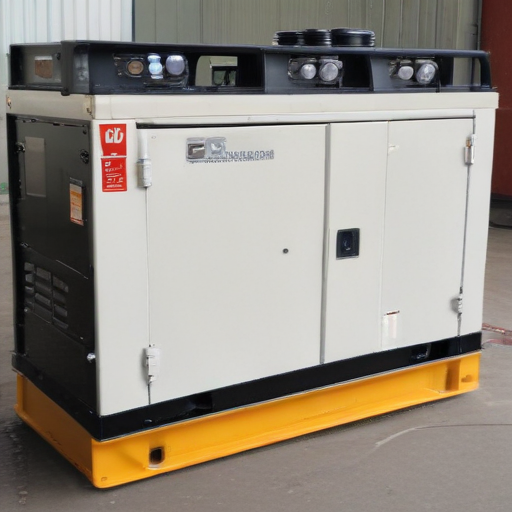
How to use “7kw diesel generator”
Using a 7kW diesel generator involves several key steps to ensure safe and efficient operation:
1. Preparation:
– Read the Manual: Always start by reading the manufacturer’s manual for specific instructions and safety guidelines.
– Fuel Check: Ensure the generator has enough diesel fuel. Use clean, fresh diesel to avoid engine problems.
– Oil Check: Verify the oil level is adequate. Refer to the manual for the correct oil type and fill level.
– Coolant Check: Check the coolant level if your generator is water-cooled.
– Battery Check: Make sure the battery is charged and in good condition.
2. Placement:
– Ventilation: Place the generator in a well-ventilated area to avoid carbon monoxide buildup.
– Stability: Ensure the generator is on a flat, stable surface.
– Distance: Keep it at least 20 feet away from buildings and combustible materials.
3. Starting the Generator:
– Pre-Start Inspection: Check for any visible damage or leaks.
– Fuel Valve: Open the fuel valve.
– Choke: Set the choke lever to the ‘Start’ position if applicable.
– Ignition: Turn the ignition switch to the ‘On’ position.
– Start: Use the electric start button or pull start mechanism to start the generator.
4. Operation:
– Warm-Up: Allow the generator to run for a few minutes before connecting any appliances.
– Load Connection: Gradually connect appliances, ensuring the total load does not exceed 7kW.
– Monitor: Regularly monitor the generator for any unusual noises or performance issues.
5. Shutting Down:
– Disconnect Loads: Disconnect all appliances before shutting down.
– Cool Down: Let the generator run without load for a few minutes to cool down.
– Turn Off: Turn off the ignition switch and close the fuel valve.
6. Maintenance:
– Regular Checks: Perform regular oil changes, air filter cleaning, and other maintenance tasks as recommended by the manual.
– Storage: If storing for a long period, drain the fuel or add a fuel stabilizer.
By following these steps, you can safely and effectively use your 7kW diesel generator.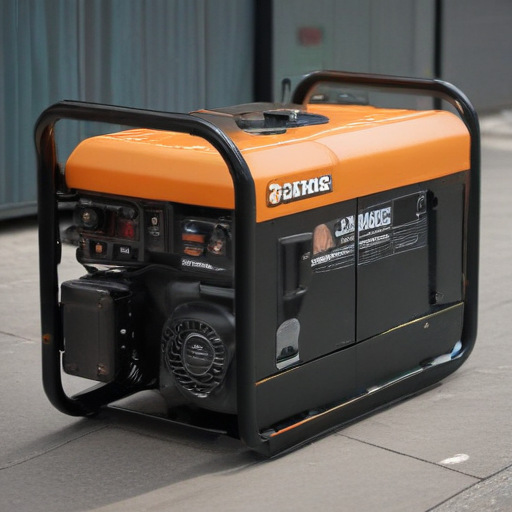
“7kw diesel generator” Comparative Analysis
When comparing 7kW diesel generators, the Multiquip DA7000SSA3, Evopower UKK7ECO-1, Generac 5837 CorePower, and Kubota GL7000 are noteworthy options. Each model has unique features and advantages that cater to different needs.
1. Multiquip DA7000SSA3:
– Engine and Performance: It uses a Kubota Z482 engine, providing a standby output of 7kW and a prime output of 6kW. The generator runs at 3600 RPM and features a mechanical governor for steady frequency regulation within 3-5%.
– Design: Known for its compact and portable design, it includes a single-side maintenance feature for easy access to filters and components.
– Noise Level: Operates at 65 dB(A) at full load.
– Control and Outlets: Equipped with a comprehensive analog control panel including voltmeter, ammeter, and frequency meter. It offers multiple outlets including GFCI duplex, twist-lock, and CS6369 for various power needs.
2. Evopower UKK7ECO-1:
– Engine and Performance: Powered by a slow-running Kubota D905 engine, it offers a 7kW standby and 6kW prime output, running at 1500 RPM which reduces stress on the engine and increases longevity.
– Design: Features a robust and compact design with water-cooled technology, making it ideal for both backup and continuous use.
– Noise Level: Slightly higher at 75 dB(A) but still reasonable for residential and commercial use.
– Control and Features: Includes an advanced control panel with automatic transfer switch (ATS) compatibility, ensuring seamless power transfer during outages.
3. Generac 5837 CorePower:
– Engine and Performance: Designed primarily for standby power, this air-cooled generator provides a consistent 7kW output.
– Design: Known for its affordability and ease of installation, it includes an automatic transfer switch and built-in priority load management.
– Noise Level: Specific noise levels are not mentioned, but Generac units typically maintain a moderate noise profile suitable for residential use.
– Control and Features: Simplified control system with essential monitoring and automatic operation during power outages.
4. Kubota GL7000:
– Engine and Performance: Utilizes a vertical diesel engine, providing 7kW standby power with efficient fuel consumption and lower emissions.
– Design: Features a low-profile design for easy installation and space-saving. The direct-coupled generator and engine ensure reliable power supply with minimal losses.
– Noise Level: Comparable to other models, ensuring minimal disturbance.
– Control and Features: Includes a durable control panel with basic monitoring tools and robust safety features, making it suitable for a variety of applications.
In summary, the choice between these generators should be guided by specific needs such as noise level, ease of maintenance, portability, and budget. For robust and continuous use, the Evopower and Multiquip models stand out, while the Generac offers a cost-effective standby solution. The Kubota GL7000 provides a balanced option with reliable performance and efficient design.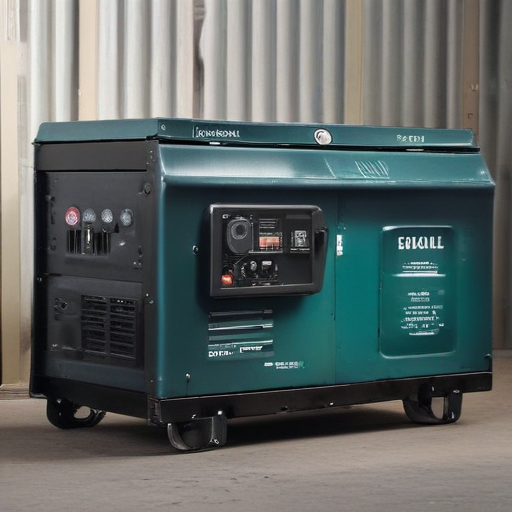
“7kw diesel generator” Warranty and Support
A 7kW diesel generator typically comes with robust warranty and support options designed to ensure reliable operation and customer satisfaction. Here are the key points regarding warranty and support for such generators:
1. Warranty Coverage:
– Engine Warranty: Many models, such as the Multiquip WhisperWatt DA7000SSA3 and the Kubota GL7000, offer a 1-year or 1000-hour warranty on the engine. The Kubota KDG9S3 model provides an extended warranty of 2 years or 2000 hours, whichever occurs first.
– Generator Warranty: The warranty for the generator itself often matches the engine warranty, typically covering 1 year or 1000 hours of use.
2. Support Services:
– 24/7 Customer Support: Many manufacturers offer around-the-clock customer support to handle any issues or questions that may arise during operation.
– Maintenance and Repairs: Support often includes comprehensive maintenance services and access to authorized repair centers. This ensures that any repairs are performed by trained professionals using genuine parts.
– Online Resources: Manufacturers usually provide extensive online resources, including user manuals, troubleshooting guides, and FAQs to assist users in self-diagnosing and fixing common issues.
3. Additional Features:
– Portability and Accessories: Options for portability kits and trailers are available to make the generator more mobile and easier to handle.
– Safety and Monitoring: Many models come with advanced safety features like automatic shutdowns for low oil pressure or high water temperature, and digital control panels for monitoring voltage, frequency, and other critical parameters.
Overall, when choosing a 7kW diesel generator, it’s essential to consider the warranty terms and support services offered by the manufacturer to ensure long-term reliability and performance.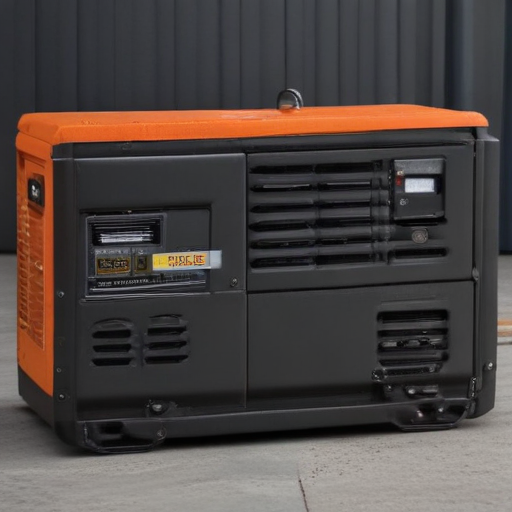
List “7kw diesel generator” FAQ
7kW Diesel Generator FAQ
#### 1. What are the key features of a 7kW diesel generator?
A 7kW diesel generator typically includes features like automatic voltage regulation, fuel efficiency, durability, and low maintenance. It often has a robust engine, a large fuel tank for extended operation, and safety features like overload protection and emergency shutdown.
#### 2. What applications are suitable for a 7kW diesel generator?
A 7kW diesel generator is suitable for home backup power, small business use, outdoor events, construction sites, and agricultural operations. It provides sufficient power for essential appliances, tools, and equipment.
#### 3. How long can a 7kW diesel generator run on a full tank?
The runtime depends on the load and the fuel tank capacity. On average, a 7kW diesel generator can run for about 8-12 hours on a full tank at 50-75% load.
#### 4. What is the fuel consumption of a 7kW diesel generator?
Fuel consumption varies based on the load. Typically, a 7kW diesel generator consumes around 1-1.5 gallons of diesel per hour at full load.
#### 5. What maintenance is required for a 7kW diesel generator?
Regular maintenance includes checking and changing the oil, replacing air and fuel filters, inspecting the battery, and ensuring the cooling system is functioning properly. It’s recommended to follow the manufacturer’s maintenance schedule.
#### 6. Is it safe to run a 7kW diesel generator indoors?
No, it is not safe to run a diesel generator indoors due to the risk of carbon monoxide poisoning. Generators should be used in well-ventilated outdoor areas away from windows, doors, and vents.
#### 7. Can a 7kW diesel generator be connected to a home’s electrical system?
Yes, it can be connected to a home’s electrical system via a transfer switch, which ensures safe operation and prevents backfeeding into the grid.
#### 8. What are the noise levels of a 7kW diesel generator?
Noise levels vary by model but generally range from 65 to 75 decibels at a distance of 23 feet. Noise reduction features like soundproof enclosures can help reduce the noise output.
#### 9. What are the advantages of a diesel generator over a gasoline one?
Diesel generators are more fuel-efficient, have a longer lifespan, and require less maintenance compared to gasoline generators. They also tend to be more robust and reliable for heavy-duty use.
#### 10. What safety precautions should be taken when using a 7kW diesel generator?
Ensure proper ventilation, avoid overloading, regularly inspect and maintain the generator, use appropriate fuel storage, and follow all manufacturer instructions and guidelines.
These FAQs cover the essential aspects and common concerns regarding 7kW diesel generators.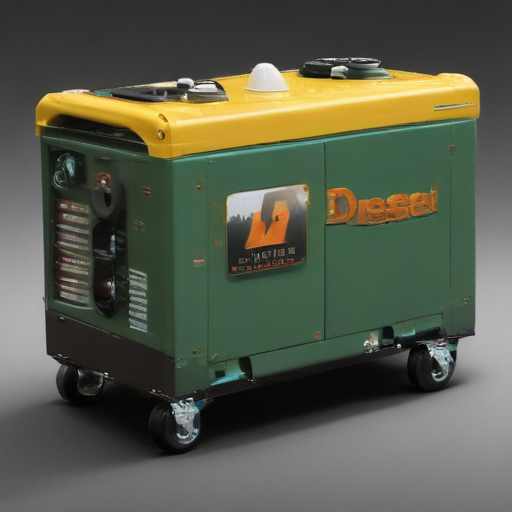
Top 10 FAQ with answer about 7kw diesel generator for Buyer Sourcing from China
Top 10 FAQs about 7kW Diesel Generators for Buyer Sourcing from China
1. What is the average lead time for a 7kW diesel generator order?
– Lead time typically ranges from 20 to 30 days, depending on order size and factory workload.
2. What certifications should I look for?
– Ensure the generator has CE, ISO, and EPA certifications, indicating compliance with international safety and quality standards.
3. What is the minimum order quantity (MOQ)?
– MOQs can vary, but usually, it’s around 10 units. Some manufacturers might accommodate smaller orders for first-time buyers.
4. What warranty and after-sales service are provided?
– Most suppliers offer a 1-2 year warranty. After-sales services often include spare parts availability and technical support.
5. Can the generator be customized?
– Yes, many manufacturers offer customization options such as color, branding, and specific component adjustments.
6. What is the payment term?
– Common payment terms are T/T (Telegraphic Transfer), L/C (Letter of Credit), and sometimes, PayPal for smaller orders. Typically, a 30% deposit is required with the balance paid before shipment.
7. How is the generator shipped and what are the shipping costs?
– Generators are usually shipped by sea. Shipping costs depend on the destination, shipment volume, and weight.
8. What fuel consumption can I expect?
– A 7kW diesel generator typically consumes around 1.5-2.5 liters of diesel per hour under full load.
9. Are there any additional costs?
– Additional costs may include import duties, VAT, inland transportation, and customs clearance fees.
10. How do I ensure the quality of the generator before shipment?
– Request a pre-shipment inspection report or hire a third-party inspection service. Many suppliers also offer factory tours or video inspections.
By addressing these key questions, buyers can make informed decisions when sourcing 7kW diesel generators from China.

